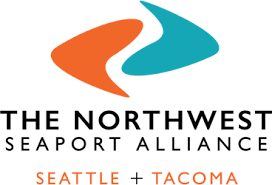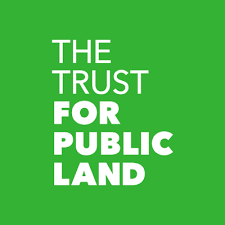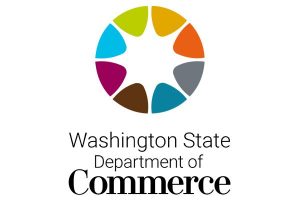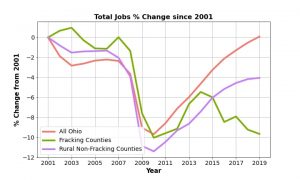Past ACORN Projects
Homeostasis Systems Corp

Project Team
Makoto Eyre, Cofounder and CEO, Homeostasis Systems Corp
Hemalatha Velappan, PhD Student, School of Environmental & Forest Sciences, UW
Project Description
Homeostasis Systems Corp is an early-stage CO2 removal & utilization (CDRU) startup that is developing a process that removes and reduces atmospheric CO2 into carbonaceous products (namely, carbon black & graphite). It is vital for CDRU organizations to build and regularly perform Carbon Life Cycle Analyses (LCA) to ensure they are having the effects on atmospheric carbon that they proport. Homeostasis has created a preliminary LCA model that the ACORN volunteer will help revisit and refine through literature review, building a Life Cycle Inventory, and developing an LCA.
Snoqualmie Valley Preservation Alliance (SVPA)
Project Team

Lauren Silver, Executive Director, Snoqualmie Valley Preservation Alliance
Erin Ericson, Executive Director, Snoqualmie Valley Watershed Improvement District
Bryan McClintic, MS Student, Civil & Environmental Engineering, UW
Caroline Passalacqua, MS Student, Dept. of Urban Design & Planning, UW
Surabhi Subedi, MPA Student, Evans School of Public Policy & Governance, UW
Elena Becker, MPA Student, Evans School of Public Policy & Governance, UW (former member; graduated June 2023)
Alexis Gjurasic, MPA Student, Evans School of Public Policy & Governance, UW (former member)
Project Description
The Snoqualmie Valley Preservation Alliance (SVPA), Snoqualmie Valley Watershed Improvement District (SVWID), and UW ACORN Watershed Resilience Project developed a high-level issue policy brief that summarized the benefits and importance of water storage for offsetting climate change. The ACORN volunteers performed data collection on the impacts of worsening flooding events in the lower Snoqualmie Valley as well as the lack of water in the dry season. They identified key stakeholders which they presented and shared their synthesized results to reach a target audience.
The Northwest Clean Energy Atlas
 Project Team
Project Team
Eileen V. Quigley, Founder & Executive Director, Clean Energy Transition Institute
Ruby Moore-Bloom, Researcher, Clean Energy Transition Institute
Leslie Nguyen, MMA Student, School of Marine and Environmental Affairs, UW
Cassidy Quigley, MS Student, Mechanical Engineering, UW
Jade Sauvé, PhD Student, School of Oceanography, UW (read more)
Cassia Cai, PhD Student, School of Oceanography, UW (read more)
Project Period
Spring 2022 – Winter 2025
Project Description
The Clean Energy Transition Institute aims to aggregate energy data across the four Northwest states and used Tableau’s data visualization software to create an interactive atlas. The atlas serves as a tool for stakeholders to understand the current energy systems throughout the region and see how they need to change as the region decarbonizes over time. The ACORN volunteers updated existing visualizations and created new visualizations in an effort to explore the energy sources that power our electricity grid, buildings, transportation, and industry to understand the opportunities and challenges for how the Northwest can lead in the clean energy transition. Learn more about the Northwest Clean Energy Atlas here or explore the atlas here!
Sustainability and Health Disparities Assessment with the NW Seaport Alliance
 Project Team
Project Team
Steve Nicholas, Senior Manager, Air Quality & Sustainable Practices, NW Seaport Alliance
Graham VanderScheldon, Environmental Project Manager, NW Seaport Alliance
Gabriela Carr, MMA Student, School of Marine and Environmental Affairs, UW
Sindana Ilango, Postdoctoral Student, Dept. of Epidemiology, UW
Project Period
Summer 2021 – Winter 2022
Project Description
The Northwest Seaport Alliance (NWSA) is a marine cargo operating partnership between the Ports of Tacoma and Seattle that serves as a distribution center to Asia, the Midwest, Ohio Valley, and East Coast. In an effort to become more engaged with environmental-related priorities, NWSA is pursuing two new initiatives focused on 1) sustainability and 2) health disparities. One of the two ACORN projects assessed the climate goals and priorities of both major customers and the NW Ports Clean Air Strategy to inform future partnerships. The second ACORN project aimed to understand the partnership’s contribution to environmental health disparities in communities near the Ports of Seattle and Tacoma. The second project student. Sindana Ilango, built off their ACORN project and received a NIH career development award to study climate and aging, using some creative study designs to quantify how the environment affects older adults and identify equitable policies to slow climate change and improve public health.
Lake Forest Park Community Solar
 Project Team
Project Team
Anne Udaloy, Vice Chair, Lake Forest Park Climate Action Committee
Mark Philips, Former Lake Forest Park City Council Member
Dakota Mascarenas, PhD Student, Dept. of Civil & Environmental Engineering, UW
Project Period
Fall 2020 – Fall 2022
Project Description
The primary deliverable for this scope of work was a document detailing Lake Forest Park’s setting and to understand the feasibility of community solar via precedent projects. Projects of varying sizes were researched and described, ranging from small-scale installations supporting resilience in Seattle such as the Miller Community Center], mid-scale projects such as the OPALCO Decatur Microgrid to large utility-supported grids such as the Horn Rapids Solar, Storage, and Training project. This project did not result in any new community solar projects in Lake Forest Park; however, it provided an opportunity for Dakota Mascarenas to work with community activists and utility managers to understand a complex and exciting opportunity for a better world. Read Dakota’s full blog post here!
Assessing Environmental and Health Benefits of Green Schoolyards in Tacoma, WA
 Project Team
Project Team
Quena Batres, Community Engagement Manager, Trust for Public Land
Chris Boyer, PhD Student, Dept. of Environmental and Occupational Health Sciences, UW
Nolan Kitts, MS Student, School of Environmental and Forest Sciences, UW
Project Period
Winter 2021 – Spring 2022
Project Description
The Trust for Public Land (TPL) is a nonprofit organization that works to create parks and protect land for the benefit of communities around the country. TPL’s green schoolyard initiative seeks to transform blacktop playgrounds into climate-friendly hubs for community engagement that also provide important environmental services. TPL has partnered with Metro Parks Tacoma to identify neighborhoods in need of green space and rebuild 5 schoolyards by January 2023. In partnership with TPL, this ACORN project will assess the environmental and health benefits of green schoolyards in Tacoma, with a goal of supporting further efforts to transform schoolyards.
Emissions Impacts of Demand Response in Washington State
 Project Team
Project Team
Sarah Vorpahl, Senior Energy Policy Specialist, WA State Dept. of Commerce
Jennifer Snyder, Regulatory Analyst, WA State Utilities & Transportation Commission
Lindsey Davidge, PhD Student, Earth and Space Sciences, UW
Lily Hahn, PhD Student, Atmospheric Sciences, UW
Project Period
Fall 2020 – Winter 2021
Project Description
The recently passed Clean Energy Transformation Act states that WA will have an electricity supply that is 100% free of greenhouse gas emissions by 2045. As part of achieving this goal, the WA State government is considering demand response (DR) programs, which encourage energy consumers to shift or reduce energy usage during periods of high demand. This ACORN project estimated potential emissions impacts of DR in WA State. While DR implementation is primarily motivated by resource adequacy and cost concerns, understanding emissions impacts may help inform state DR targets and motivate consumer participation in DR programs.
Ohio River Valley Institute 
Project Team
Sean O’Leary, Senior Researcher, Ohio River Valley Institute
Greta Shum, PhD Student, Department of Atmospheric Sciences, UW
Project Period
Fall 2020 – Winter 2022
Project Description
This project aims to assess the impacts to Pennsylvania’s economy associated with joining RGGI (Regional Greenhouse Gas Initiative), especially relating to benefits driven by investment dynamics across and within localities. The team aims to add rigor to assessments already completed by spotlighting omissions related to local prosperity outcomes.
Assessing Economic Impacts of the “Fracking Boom” in Ohio
 Project Team
Project Team
Ted Boettner, Senior Researcher, Ohio River Valley Institute
Sean O’Leary, Senior Researcher, Ohio River Valley Institute
Logan Arnold, Masters Student, Quantitative Ecology and Resource Management, UW
Tyler Cox, PhD Student, Department of Atmospheric Sciences, UW
Project Period
Fall 2020 – Spring 2021
Project Description
This project quantified the effect that shale-gas extraction (fracking) has had on communities within the Ohio River Valley, with a particular focus on economic impacts. To learn more, visit Logan and Tyler’s PCC blog post!
Extending Community Awareness of Individual Environmental Impact through Promotion of Reduce’s Carbon Footprint Smartphone Application
 Project Team
Project Team
Samyak Shah, CEO, Reduce App
Benjamin Smith, COO, Reduce App
Billy Henshaw, PhD Student, Department of Atmospheric Sciences, UW
Project Period
Spring 2020 – Spring 2021
Project Description
This project communicated information via social media and blog posts about the Reduce carbon footprint app and how individuals can live more sustainably through small lifestyle changes. See Billy Henshaw’s PCC blog post to learn more!